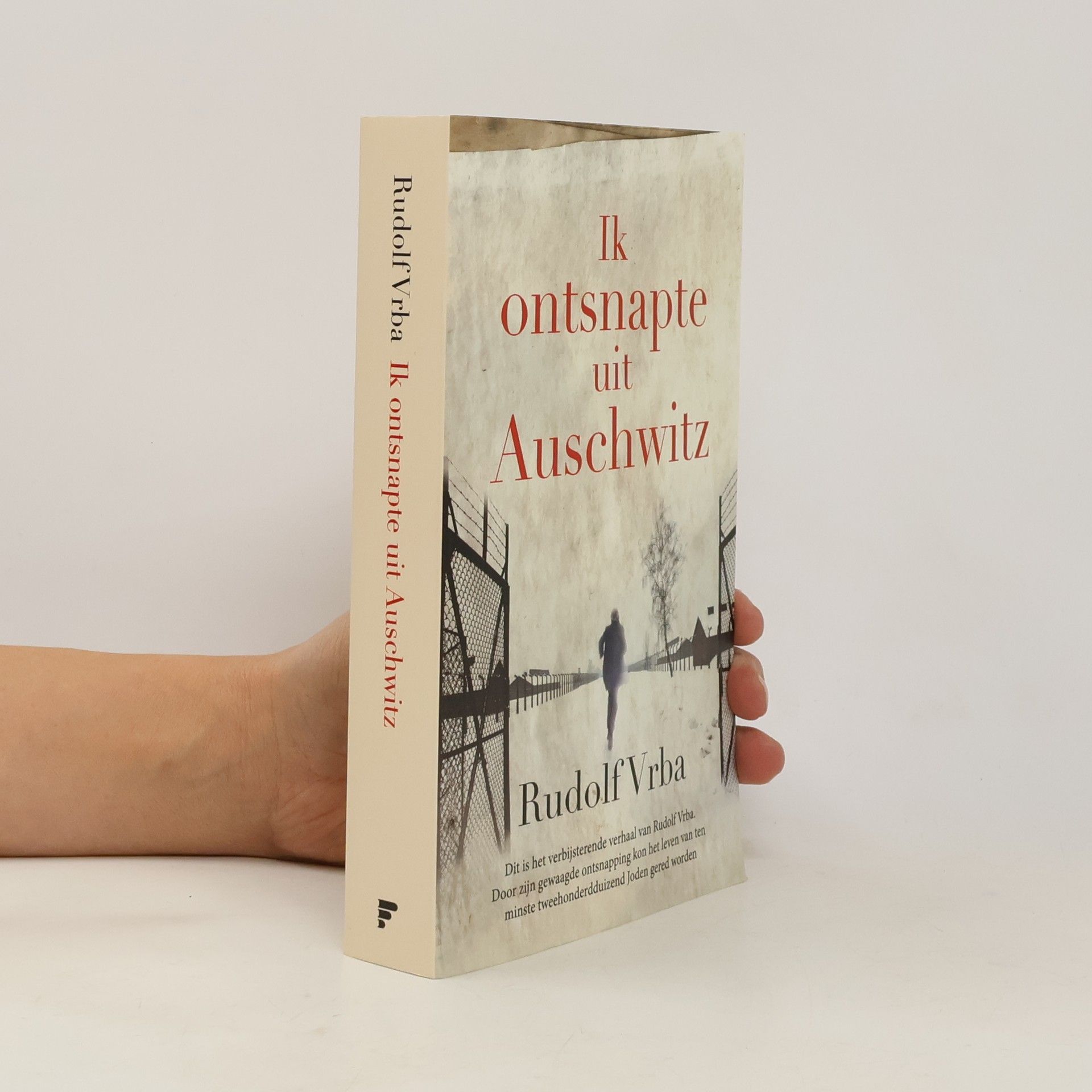I escaped from Auschwitz
- 447 pages
- 16 hours of reading
This is the first-hand account of Rudolf's Vrba's experience as a registrar in the prison camp as well as the story of his daring escape.
Rudolf Vrba, originally Walter Rosenberg, was a Slovak-Jewish biochemist who, as a teenager in 1942, was deported to the Auschwitz concentration camp. He became known for his escape from the camp in April 1944, at the height of the Holocaust, and for co-authoring a detailed report on the mass murder occurring there. His work offered the world a chilling glimpse into the horrors of the camp, highlighting the urgent need to act against them. Vrba became a symbol of courage in the face of unimaginable brutality, and his report served as a pivotal testimony of the era.





This is the first-hand account of Rudolf's Vrba's experience as a registrar in the prison camp as well as the story of his daring escape.
È l'aprile del 1944. Due ebrei slovacchi, Rudolf Vrba e Alfred Wetzler, riescono a fuggire dal lager di Auschwitz-Birkenau e dettano ai capi della comunità ebraica un rapporto dettagliato e preciso sullo sterminio e sul folle progetto della "soluzione finale", nella speranza di arrestare i terribili piani di Adolf Eichmann. La storia seguì un corso diverso e i treni carichi di deportati continuarono a viaggiare, portando centinaia di migliaia di persone verso le camere a gas, con uno strascico di accuse infamanti. Nella loro drammatica semplicità, "I protocolli di Auschwitz" costituiscono la prima testimonianza concreta dell'esistenza dei lager circolata fuori dal Reich. Nel saggio introduttivo lo storico Alberto Melloni ripercorre il cammino dei due fuggiaschi e le infinite vicissitudini di questo documento unico ed eccezionale, che ha attraversato la storia della Shoah fino ai giorni nostri.
Wenige überlebten, noch seltener gelang einem der Häftlinge die Flucht. Rudlof Vrba entkam 1944 und versuchte unmittelbar danach, den Juden im gerade erst besetzten Ungarn die Augen zu öffnen - vergeblich. Zwanzig Jahre später schrieb er die ganze schreckliche Erfahrung von Auschwitz nieder. Sein aufrüttelnder und vieldiskutierter Bericht liegt zum Gedenktag der NS-Opfer in einem lang erwarteten Nachdruck vor.
Das Buch ist eine bedeutende kulturelle Arbeit, die von Wissenschaftlern als wichtig erachtet wird und Teil des Wissensfundaments unserer Zivilisation ist. Es wurde aus dem Originaldokument reproduziert, wobei der ursprüngliche Inhalt und die Authentizität bewahrt wurden. Leser finden daher originale Urheberrechtsvermerke, Bibliotheksstempel und andere Notationen, die auf die bedeutende Geschichte und den Aufbewahrungsort in wichtigen Bibliotheken weltweit hinweisen.
Analytische annotatie: De joods-Slowaakse auteur vertelt hoe hij er op 7 april 1944 samen met mede-kampgenoot Alfred Wetzler in slaagt als een van de zeer weinigen uit het concentratiekamp Auschwitz te ontsnappen.